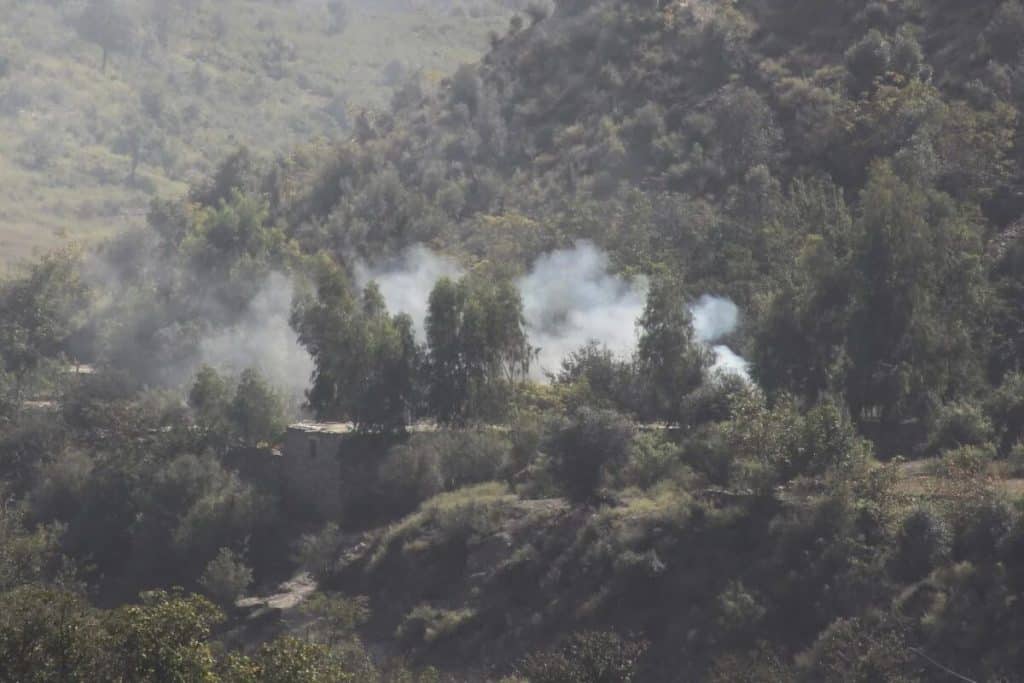A Hong Kong newspaper offers an insightful perspective on the forthcoming challenges related to the tensions between Pakistan and Afghanistan.
According to China’s Southern Morning Newspaper, Pakistan has announced it will respond with significant military force to any future terrorist attacks originating from Afghan soil. This follows a deadly border clash and indicates a potential for long-term tensions between Islamabad and the Taliban government.
The latest conflict began after Pakistan conducted retaliatory airstrikes against insurgents in Kabul and the eastern Paktika province on Thursday. Analysts believe the situation is unlikely to escalate into a full-scale war, but a diplomatic resolution remains uncertain.
Pakistani political and military leaders have stated their intention to retaliate against Tehreek-e-Taliban Pakistan (TTP) commanders and camps, as well as Baloch separatists within Afghanistan, in response to any lethal border attacks. In a statement released on Sunday, Pakistani Prime Minister Shahbaz Sharif emphasized, “There will be no compromise in defending Pakistan, and any act of aggression will be met with a strong and effective response.”
In response, the Taliban government in Afghanistan declared it would also respond militarily to violations of Afghan airspace by Pakistan. Afghan Foreign Minister Amir Khan Muttaqi, during a visit to Pakistan’s rival India, stated, “Our doors are open for talks, but if Pakistan does not seize this opportunity, we have other tools at our disposal.”
Pakistani Defense Minister Khawaja Muhammad Asif responded to these remarks in a television interview on Monday, challenging the Taliban. He said, “Carry out your threats, then we will negotiate about it.” Asif described the current situation as a “deadlock,” noting, “Currently, there is no communication, either direct or indirect, between Islamabad and Kabul,” and warned that fighting could resume “at any moment.”
Despite diplomatic mediation by Saudi Arabia and Qatar that led to a ceasefire late Sunday, analysts assert that the situation has not significantly improved. They point out that Pakistan’s decision to strike terrorist targets on Afghan soil was a response to deadly attacks by the TTP that resulted in the deaths of high-ranking army commanders and numerous Pakistani soldiers.
The intensity and scope of Pakistan’s military operations have also been influenced by a visit from the Muttahida Qaumi Movement to India, during which Afghan forces exchanged fire at eight locations along the 2,640-kilometer (1,640-mile) border in reaction to Pakistan’s airstrikes against the TTP last week.
During the conflict, Pakistan targeted Taliban forces with light weapons and shoulder-fired rockets, while simultaneously engaging Afghan military positions with artillery, tanks, and missiles from US-made F-16 fighter jets and Chinese Wing Loong 2 drones.
Following intense discussions with Indian Foreign Minister Subrahmanyam Jaishankar on Friday, both sides “strongly condemned all acts of terrorism emanating from countries in the region,” a clear reference to Pakistan’s longstanding support for militant groups in Kashmir.
Experts suggest that Pakistan’s decision to attack TTP targets in Afghanistan, coinciding with Muttaqi’s visit to New Delhi, sends a message that the Taliban’s ties to India will have consequences for itself. They argue that Pakistan’s airstrikes demonstrate its “will, capability, and accurate intelligence” regarding the location and movements of the TTP and other militant groups within Afghanistan.
During the weekend fighting, the Pakistani military reported temporarily capturing 21 Afghan border posts and destroying “several terrorist training camps” used to plan and execute attacks against Pakistan.
Michael Kugelman, a South Asia analyst in Washington, stated that the Afghanistan-Pakistan border crisis stems from “two fundamental realities.” He noted on social media, “The Taliban will never act against its close allies like Tehreek-e-Taliban Pakistan.” He also remarked that Islamabad has lost influence over the Taliban since the end of the Afghan war, as the Taliban no longer requires Pakistan’s support.

